
058 Professor Harry Ferguson on social work practice.
This is another podcast from the highly successful BASPCAN Congress held at Edinburgh University.
Professor Harry Ferguson on social work practice in families , how social workers engage with children and what the landscape of the profession is like today. Harry joined the university of Nottingham in November 2008 as Professor of Social Work. Prior to that he held posts at the University of the West of England, Bristol and in his native Ireland at University College Dublin, Trinity College Dublin and University College Cork. He is a qualified social worker and completed his PhD in the Faculty of Social and Political Sciences, University of Cambridge (1987-1990), which was a historical sociological study of social work and child protection. His teaching and research interests lie in the areas of child protection, domestic violence, social interventions into fatherhood and men’s lives, and the social science of social work.
Thanks as always to Alba Digital Media for technical support and podcast production. Don’t forget Voicemail on the left of this page if you want to leave a comment.
Podcast: Play in new window | Download
Subscribe: Spotify | Blubrry | Podcast Index | Deezer | Youtube Music | RSS

057 International Federation of Social Workers. President Ruth Stark
Representing over 1 million social workers world wide, IFSW has NGO status at the UN and represents the different ways that the profession serves communities over all continents. Ruth Stark is the current President and talks to me in a wide ranging interview, touching on subjects that unite the family of social work as well as illustrating its diversity.
After ‘trying out’ whether or not to be a Social Worker in the early 1970’s in Lichfield and Edinburgh, Ruth qualified as a Social Worker in Birmingham in 1976. Initially a Probation Officer in Stockton on Tees she moved to Edinburgh in 1978 and worked in various areas of social work – children and families, criminal justice, mental health, adoption & fostering. In 1996 she gained her MSc in Advanced Social Work in Criminal Justice with research into the Aftermath Of Sexual Offending In The Family- 20 Years On. Latterly she was manager of SASW ( Scottish Association of Social Workers ), part of BASW, for 15 years.
Alongside her career in Scotland Ruth became involved in IFSW in 1989, organising the 1991 IFSW European Conference in Glasgow, the last time it was in the UK. This was just after the Berlin Wall came down and there were had 30 eastern European delegates for the first time at an IFSW event.
An interest in Human Rights issues led to responsibility in this field at IFSW European level and in 2008 she became the Convenor of IFSW Global Human Rights Commissioner. In July 2014 she was elected President of IFSW.
Still a practitioner doing independent reports for children and people facing deportation Ruth is passionate about making sure peoples’ voices are heard by policy makers and those in positions of governance. Frontline social workers and people who use services have the most important stories to tell about what really works in making a positive difference in peoples’ lives.
It’s also good to remember the IFSW European Conference on 6th-9th September in Edinburgh. www.ifsweurope2015.org
As always my thanks to Alba Digital Media for technical support in this podcast.
Podcast: Play in new window | Download
Subscribe: Spotify | Blubrry | Podcast Index | Deezer | Youtube Music | RSS
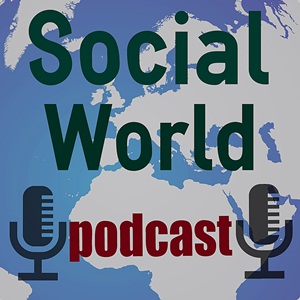
056 Social Work in Scotland and N Ireland
Following the general election I thought it interesting to hear about what’s happening in these two countries.
Alan Baird.

The Scottish Government’s Chief Social Work Adviser. Previously Director of Social Work, Dundee City Council for the previous 11 years and Past President of the Association of Directors of Social Work.
In general, his role is to advise the Government on social work issues as they arise. To help him do this, he has a staff of nine civil servants and meets on a regular basis with Scottish Government Ministers.
Sean Holland. 
Before training as a social worker at the University of Ulster in 1987 Sean Holland worked as a residential worker for homeless charities in Nottingham and Belfast. After qualifying Sean worked in family and child care, disability services and training.
As Chief Social Services Officer of Social Services (CSSO) for Northern Ireland, Sean leads a team which supports Ministers, the Department of Health, other Government Departments and agencies working in the fields of social care and social work. Sean also has responsibility for policy for family and child care, mental health, older people and people with disabilities within the Department of Health.
Sean has an LLM in Medical Law, has worked with government departments on the development of social services in Bulgaria, Croatia, Azerbaijan and Jordan and is a member of the Advisory Committee for the Child Protection Centre at the University of Edinburgh.
Also in this programme I’ve included a Speakpipe request and would welcome more of them to hear your thoughts and ideas.
As always my thanks to Alba Digital Media for technical support in making this podcast possible.
Podcast: Play in new window | Download
Subscribe: Spotify | Blubrry | Podcast Index | Deezer | Youtube Music | RSS

055 Self Leadership in Social Work
“Self Leadership in Social Work” , subtitled “reflections from practice”, a new book by Bill McKitterick that offers a fresh and innovative view on leadership for social workers and managers.It’s a call for confident, skilled and knowledgeable practice in social work. Published by Policy Press.
Bill is a social worker now working in supervision and leadership. He has been a director of social services for ten years, including leading workforce development. He has worked in programmes to improve social work practice in local authority services following critical inspections and has contributed through the British Association of Social Workers and the College of Social Work to the national reform programme.
Thanks as always to Alba Digital Media for technical support, audio production and podcast syndication.
Podcast: Play in new window | Download
Subscribe: Spotify | Blubrry | Podcast Index | Deezer | Youtube Music | RSS

054 Mandatory Reporting Debate
The formal debate on mandatory reporting took place at the BASPCAN Congress in Edinburgh where a packed theatre voted substantially against the proposal initially and , at the end, still voted against but with a much reduced majority.
This debate, whoever wins the General Election, will continue to divide the professional community.
Peter Garsden, the President of the UK Association of Child Abuse Lawyers has represented over 25 class actions of survivors of abuse and speaks for the introduction of legislation to make this compulsory with sanctions imposed on professionals who knowingly fail to report abuse.
Dr Jill McLeigh, a clinical assistant professor at the Kempe Centre for the Prevention and Treatment of Child Abuse at Colorado University argues against the proposal citing the unsatisfactory situation in the USA where it has been Federal Law since 1963.
Associate Professor Ben Mathews from the Australian Centre for Health Law research at Queensland University of Technology has researched this comprehensively and draws on over 10 years of data to argue the case, though not speaking in the main debate.
The podcast is a bit longer than usual but , I hope you agree worth it.
Thanks as always to Alba Digital Media for technical support, audio production and podcast syndication.
Podcast: Play in new window | Download
Subscribe: Spotify | Blubrry | Podcast Index | Deezer | Youtube Music | RSS

053 BASPCAN Congress interviews
John Devaney MBE, Director of Social Work Education at Queens University , Belfast who Chaired the Congress gives his thoughts on the success of the event.
John was 20 years a social work practitioner and joined the University in 2006. He is also National Chair of the British Association for the Study of Child Abuse and Neglect.
Then, to follow, Sue Berelowitz, the Deputy Children’s Commissioner for England, talks about new initiatives and improved chances to hear the voice of the child in their “see me hear me” “no longer invisible” programme.

As always, my thanks to Alba Digital Media for their technical expertise and all audio production and syndication of this podcast.
Many more top interviews from this prestigious conference to come.
Podcast: Play in new window | Download
Subscribe: Spotify | Blubrry | Podcast Index | Deezer | Youtube Music | RSS

052 Child Trafficking & Modern Slavery
The practice of child trafficking and modern slavery in the 21st century at the level that it exists is one of the most appalling and shameful indictments of the worldwide human condition.
Bharti Patel is CEO of ECPAT UK. Bharti has more than fifteen years’ experience working to address human rights abuses around the world, leading high-profile research, campaigning and advocacy organisations in the UK and India. Bharti’s passion to challenge the root causes of child exploitation and abuse underpins her leadership role with ECPAT UK, where she has overseen important changes to law and policy in the area of child protection and trafficking prevention. In the UK, Bharti’s prior achievements include successfully lobbying for Britain’s first-ever national minimum wage legislation and helping secure basic employment rights for low-paid and part-time workers. In India, Bharti worked on sustainable development programmes addressing the strengthening of food, water and livelihood security for vulnerable communities. An accomplished speaker and writer, Bharti has featured widely in the British print and broadcast media, and is regularly quoted in articles on poverty, inequality, child trafficking and child protection.
My thanks , as always, to Alba Digital Media for technical support and all podcast post production in making this podcast possible.
Podcast: Play in new window | Download
Subscribe: Spotify | Blubrry | Podcast Index | Deezer | Youtube Music | RSS

051 Child Protection
It certainly has been child protection week! With the Prime Minister announcing his ideas for professionals in child protection to be charged with ‘wilful neglect’– carrying a prison term of up to 5 years if they fail to report a child in danger. The fact that the Oxford cases that sparked this latest thinking specifically said that there was no evidence of wilful neglect and with all safeguarding training emphasising the necessity to share even the hint of concern with a colleague, it seems a wrong direction to take. I’ve no problem with anyone being held to account for deliberately not helping a child at risk but the terrible shortfall in staff numbers and the great need for more human and training resources would seem to be the way to go.
Then, I was invited on BBC Newsnight http://tinyurl.com/kheq4gl (32.5 minutes in) to talk about the first conviction of a sex offender resulting from vigilante entrapment. Interesting!
Finally, and I’ve included the interview on the podcast, I talked to BBC Wiltshire about a perceived high growth in the numbers of Children in Need referrals in their region.
Thanks, as always, to Alba Digital Media for their technical support in producing this Podcast.
Podcast: Play in new window | Download
Subscribe: Spotify | Blubrry | Podcast Index | Deezer | Youtube Music | RSS
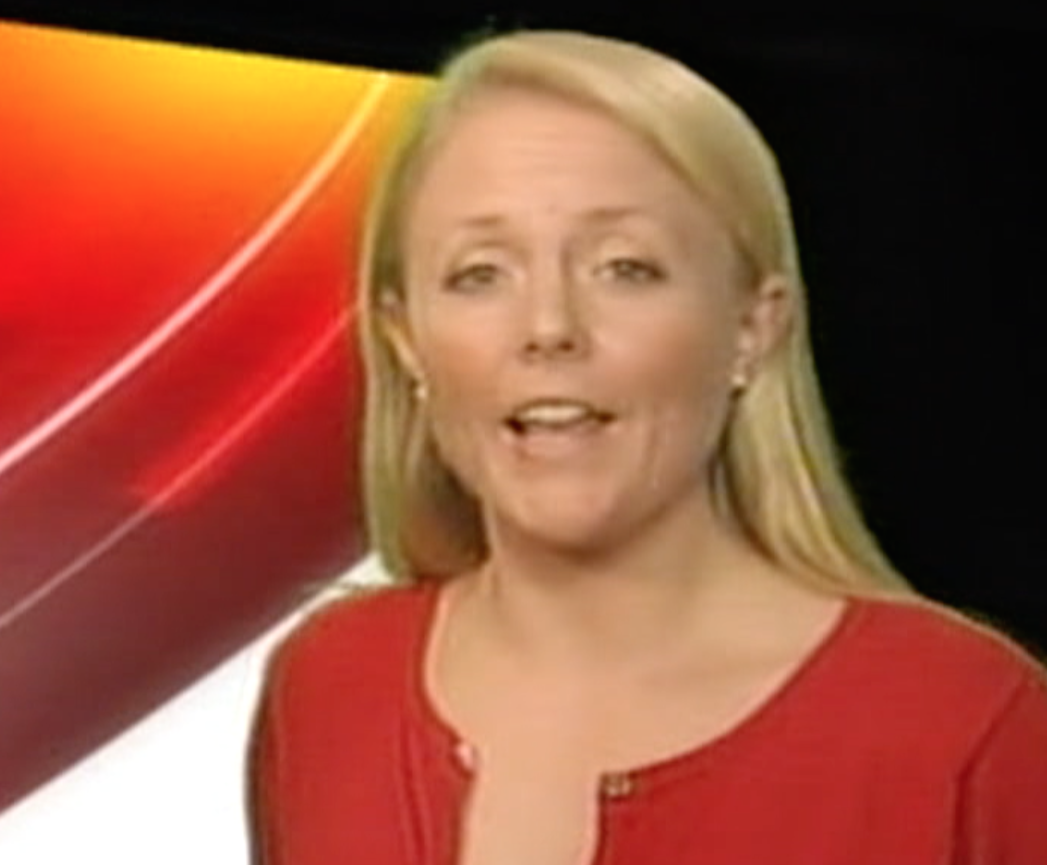
050 A Story of Historic Abuse
With the announcement of the new Chair of the Historic Abuse Inquiry this is a story that should be referred to that inquiry as I think it typical of the unfinished business that this country is awash with and the hundreds, if not thousands, of survivors out there still living with the legacy of what was done to them.
Usually I give interviews to the media on child protection, cases, policy or other concerns but this time I thought I’d look at a current case. Pam Caulfield ( pictured ) is an investigative journalist with the BBC in Hereford and Worcestershire and has been reporting, presenting and producing for 7 years. She has researched the story of St Gilberts approved school in Worcestershire, run until 1975 by the De La Salle Order of Christian Brothers–a teaching order still active today. She found a shocking history of sexual and physical abuse, perpetrated at the school, with rape and sadistic beatings commonplace. Two former pupils talked of their ordeals and many more are still living with the legacy. I’m going to follow this story as it unfolds and as the (belated) police investigation by West Mercia Police continues. All praise to Pam Caulfield as she describes her long journey of discovery.
Podcast: Play in new window | Download
Subscribe: Spotify | Blubrry | Podcast Index | Deezer | Youtube Music | RSS
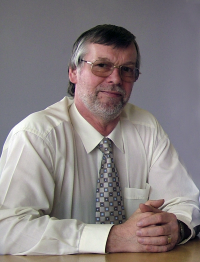
049 Young adults & learning disability
This episode has a conversation about a non profit company working with young adults with a learning disability and a bit from me about the comments of Simon Bailey, Chief Constable with a leading role in combatting child sex abuse. He advocates that some “non-contact” paedophiles who just download child porn should be referred to the Health service rather than the criminal justice system. I disagree.
But first……….
George L Livingstone, Consultant is a qualified Social Worker and Manager, with over 35 years’ experience in the Social Work, Social Care, Child Care and Quality Assurance Sectors at a range of levels in addition to over 10 years as a Senior Manager, Director and Managing Director in the Adult Education Sector. George provides Management Training, Health and Social Care Training, Tender Writing Training, Tender Writing Coaching, Policy writing and Review, Tender Writing and Conference Organisation. One of his responsibilities involves consulting for
Nansen Highland, which is a non-governmental organisation based in the Highlands of Scotland.
It is a company originally motivated by the life and work of the Norwegian humanitarian and explorer, Fridtjof Nansen.
Nansen Highland principally provides training for young adults with learning disability and related difficulties.
Nansen Highland is set up to train and assist in the training of young adults so to develop their physical, mental and spiritual capacities that they may grow to full maturity as individuals and members of society, and to instruct and to assist in instructing young persons in the principles of discipline, loyalty and good citizenship.
Nansen provides training through its Day Education Centre, Residential Care through 2 small residential units and Home Based Support for those young adults with their own tenancies.
Podcast: Play in new window | Download
Subscribe: Spotify | Blubrry | Podcast Index | Deezer | Youtube Music | RSS

048 Jane Devine Social Work Scotland
What’s the picture of social work in Scotland? After a monumentous year for the country, how is the profession shaping up in Scotland?
Jane Devine is the Business Manager for Social Work Scotland, the successor organisation to the Association of Directors of Social Work.
She talks of initiatives, political support, policy priorities and hopes for the future in a wide ranging interview. She also focusses on the specific work being convened regarding the image of social work and its crucial role in the community.
This is definitely a set of challenges for us to keep an eye on and I’ll follow up as 2015 progresses.
My thanks as always to Alba Digital Media.
Podcast: Play in new window | Download
Subscribe: Spotify | Blubrry | Podcast Index | Deezer | Youtube Music | RSS

047 BASPCAN Congress
An excellent interview with Julie Taylor who Chairs the Congress Committee for the BASPCAN Congress 2015 at the University of Edinburgh. BASPC AN stands for the British Association for the Study and Prevention of Child Abuse and Neglect. You can find it at www.baspcan.org.uk . Its Facebook address is its full name and the Twitter handle for the Congress is #9ed2015. This prestigious event takes place every 3 years and is packed full of top speakers and excellent topics concerning child protection.
Julie Taylor is the inaugural chair of the Child Protection Research Centre, an innovative partnership between the University of Edinburgh and the UK’s leading child protection charity, the National Society for the Prevention of Cruelty to Children (NSPCC). Before taking up post in early 2013, she was Head of Strategy and Development (Abuse in High Risk Families) with the NSPCC whilst on a three year secondment from her post as Professor of Family Health in the School of Nursing and Midwifery, University of Dundee. Until March 2010 she was Research Dean and Head of Division (Research and Postgraduate Studies) and led the University’s first submission to the Nursing Unit of Assessment in the national research assessment exercise (RAE 2008). She trained as a nurse in the 1980s at St James’ University Hospital Leeds and held a number of increasingly senior nursing posts before entering higher education in 1992 at the University of York, moving to Dundee in 1997.
Thanks, as always to Alba Digital Media for technical support in making this Podcast possible.
Remember to leave feedback and keep up on Twitter @daveniven.
Podcast: Play in new window | Download
Subscribe: Spotify | Blubrry | Podcast Index | Deezer | Youtube Music | RSS

046 Social Work & Media Training
Social work and Media Training. What is the image of social work in the media? How long will social workers be the targets for allowing children to be abused or the elderly to be dehumanised? Probably as long as we avoid looking too closely at ourselves and demand scapegoats. We do love to cultivate our blame culture.
Given all this, how happy are social workers with the image of the profession portrayed by the media? My company commissioned a survey aimed at those in and close to social work to see if the perceptions were right and what measures were needed to improve things.
Ten questions were asked, on topics including image and the voice of frontline workers, and we received 356 responses. Answers were given on a scale from “strongly agree” to “strongly disagree”, and each question also got between 40 and 70 voluntary comments. Ninety per cent of respondents were in social work as frontline workers, managers, students, academics, independent case workers and retired staff.
For the question: “The image of social work in the media is satisfactory”, 90% of respondents strongly disagreed or disagreed. Comments included:
Furthermore, 90% strongly agreed or agreed with the question “Employers should be more open with the media about the work social workers do.” Respondents commented:
“Issues pertaining to confidentiality, information sharing and data protection are used too regularly as an excuse to avoid media engagement.”
And 76% strongly agreed or agreed with the question “Frontline social workers should be seen and heard more in the media.” As one respondent said: “Frontline workers should be heard to aid better understanding in communities.”
Kieran File is a media linguist and communication consultant. His PhD research explored the language of media interviews. His first thoughts on the survey feedback showed the following sentiments were common. Participants “have no doubt that aggressive media targeting of social workers in the wake of scandals and tragedies makes the job of practitioners more difficult”. The consequences for morale are evident:
We need to share the vast collection of positive social work stories with the public to improve understanding and balance. I’ve no problem in suggesting the reverse and inviting journalists to talk with social work students on the issues. It’s a two-way street.
There are many good journalists who would be willing to give an honest account if they felt they were being included, within reason. And there are many good social workers who are mature and aware enough to share our world with the media without being shackled by employers. They can offer local success stories. Others at a higher pay grade can deal with complaints. Trust is possible. This is where social work and media training comes in.
For every scare story that isn’t balanced, it makes it just that more difficult for the social worker on the doorstep the next day to gain the trust of a family.
David Niven Associates offers social work media training in association with Compass and the British Association of Social Workers. The full results of the survey are on the website.
Podcast: Play in new window | Download
Subscribe: Spotify | Blubrry | Podcast Index | Deezer | Youtube Music | RSS
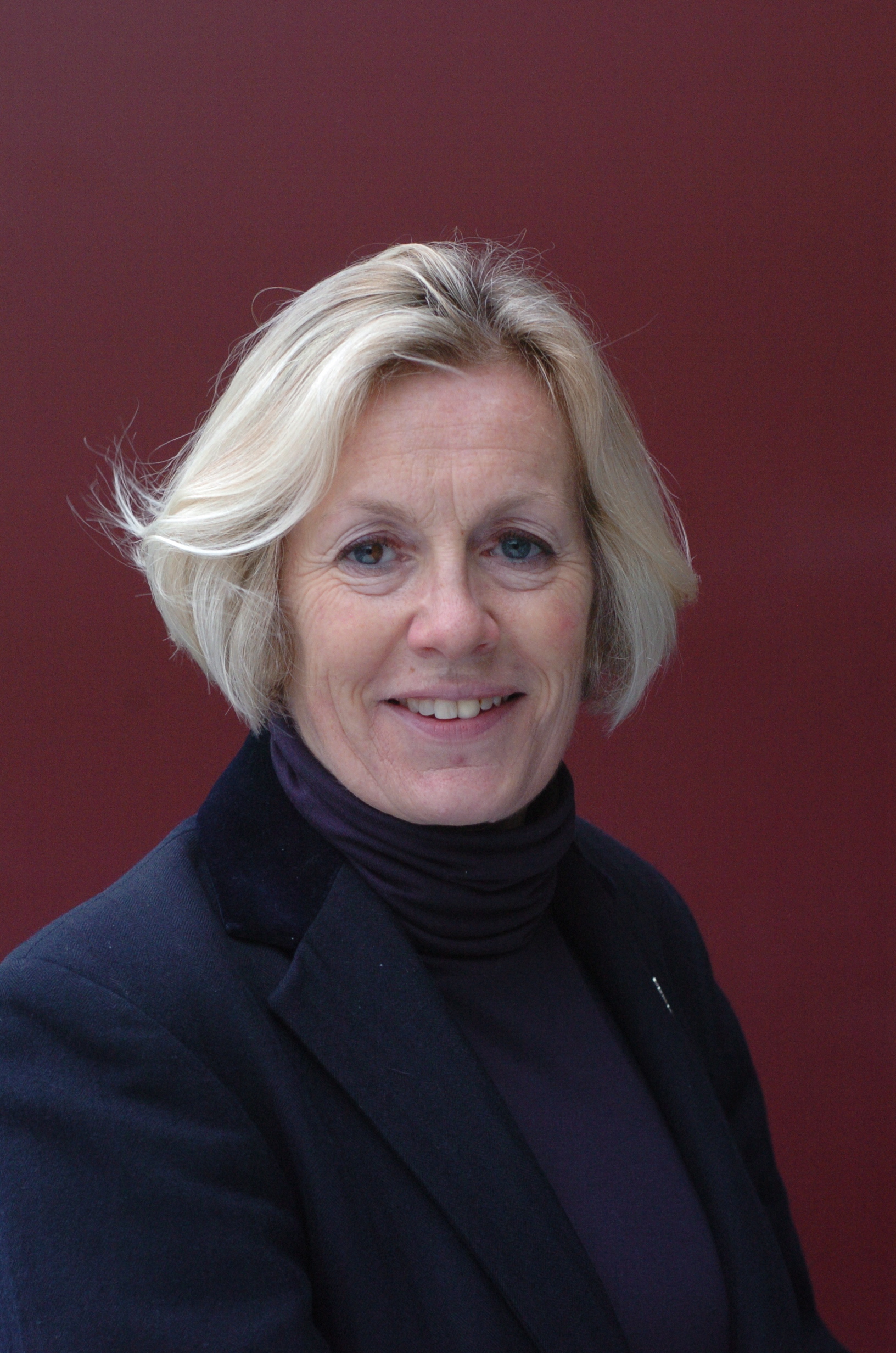
045 Tessa Munt MP
Tessa Munt serves as Parliamentary Private Secretary to Rt Hon Vince Cable MP, Secretary of State for Business Innovation and Skills.Tessa was inspired to pursue a career in politics by her grandfather who took up politics in his adopted country, Kenya, serving as Minister for Finance & Development through the 1950s.Elected the MP for Wells Constituency in May 2010.
A strong supporter of social work, Tessa talks of her commitment to protecting the vulnerable and disadvantaged in our communities. A survivor of childhood abuse herself, she was one of the seven MPs who drove the campaign to establish the current Government enquiries into historic and institutional abuse.
The interview ranges from major resource issues to coping on a personal level and how survivors today need all we can give to get to a point where they can talk in safety and with confidence.
Thanks as always to Alba Digital Media for their technical support in creating this podcast.
Podcast: Play in new window | Download
Subscribe: Spotify | Blubrry | Podcast Index | Deezer | Youtube Music | RSS

040 JSWEC Part 6 Social Media
JSWEConference Part 6. Thoughts of newly qualified workers and social media in social work education.
A final roundup of interviews from the conference. Firstly an interesting discussion with three newly qualified social workers from the University of Dundee, Leanne , Nicola and Will. The next interview is with six authors launching their new book at the conference “Social Media in Social Work Education” and finally, Pauline Franklin- Senior Social Work Lecturer at Canterbury Christ Church along with two young care leavers from the charity Catch 22–Holly Dixon and Ben Middleton–and all three look at using social media to promote the voice of young people in social work education.
Podcast: Play in new window | Download
Subscribe: Spotify | Blubrry | Podcast Index | Deezer | Youtube Music | RSS

044 Chair of BASW
An interview with Guy Shennan, the recently elected Chair of the British Association of Social Workers. Then, a short interview I gave on the situation in Birmingham concerning stress in social work and its impact on morale and service delivery.
Guy Shennan qualified as a social worker in 1989, having trained at the University of Sheffield. He worked in Derbyshire for nine years, mainly in children and families teams, before moving to Leicester to work for the Family Service Unit there in 1998. At this time he was developing his specialism within solution-focused practice, and he now works as an independent consultant, training and using the solution focused approach as a practitioner and supervisor. His recent practice has ranged from groupwork with children in primary schools to individual solution-focused sessions in prisons with prolific offenders. His book, Solution-Focused Practice: Effective Communication to Facilitate Change, was published by Palgrave Macmillan in September 2014. A member of BASW since 1992 and of SWU since its inception, Guy was an active member of the Derbyshire branch during the 1990s. His active association with BASW resumed in 2011 when he joined with other members in forming links with the Palestinian Union of Social Workers and Psychologists, which led to the formation of the Palestine-UK Social Work Network. Guy became chair of BASW in June 2014.
Thanks as always to Alba Digital Media for technical support—they also can teach and support Podcasting !!
Podcast: Play in new window | Download
Subscribe: Spotify | Blubrry | Podcast Index | Deezer | Youtube Music | RSS

040 JSWEConference Part 5
Three more great interviews from this year’s JSWEConference. Such a rich vein of content. I hope you enjoy them.
Today’s interviews include Juliet Koprowska , Senior Lecturer in Social Work at York University talking about exploring the use of self, revealed through examination of real social work encounters.
Sam Baeza, from the University of Chichester whose session “swimming with sharks” examines what social workers experience when assessing families where sexual abuse is the primary factor. He also continues to work as an independent assessor of sexual offenders.
Jane McLenachan, head of Social Work and Health at De Montfort University looks at the public perceptions of thresholds for abuse within Child Safeguarding and Domestic violence.
Thanks as always to Alba Digital Media.
Podcast: Play in new window | Download
Subscribe: Spotify | Blubrry | Podcast Index | Deezer | Youtube Music | RSS
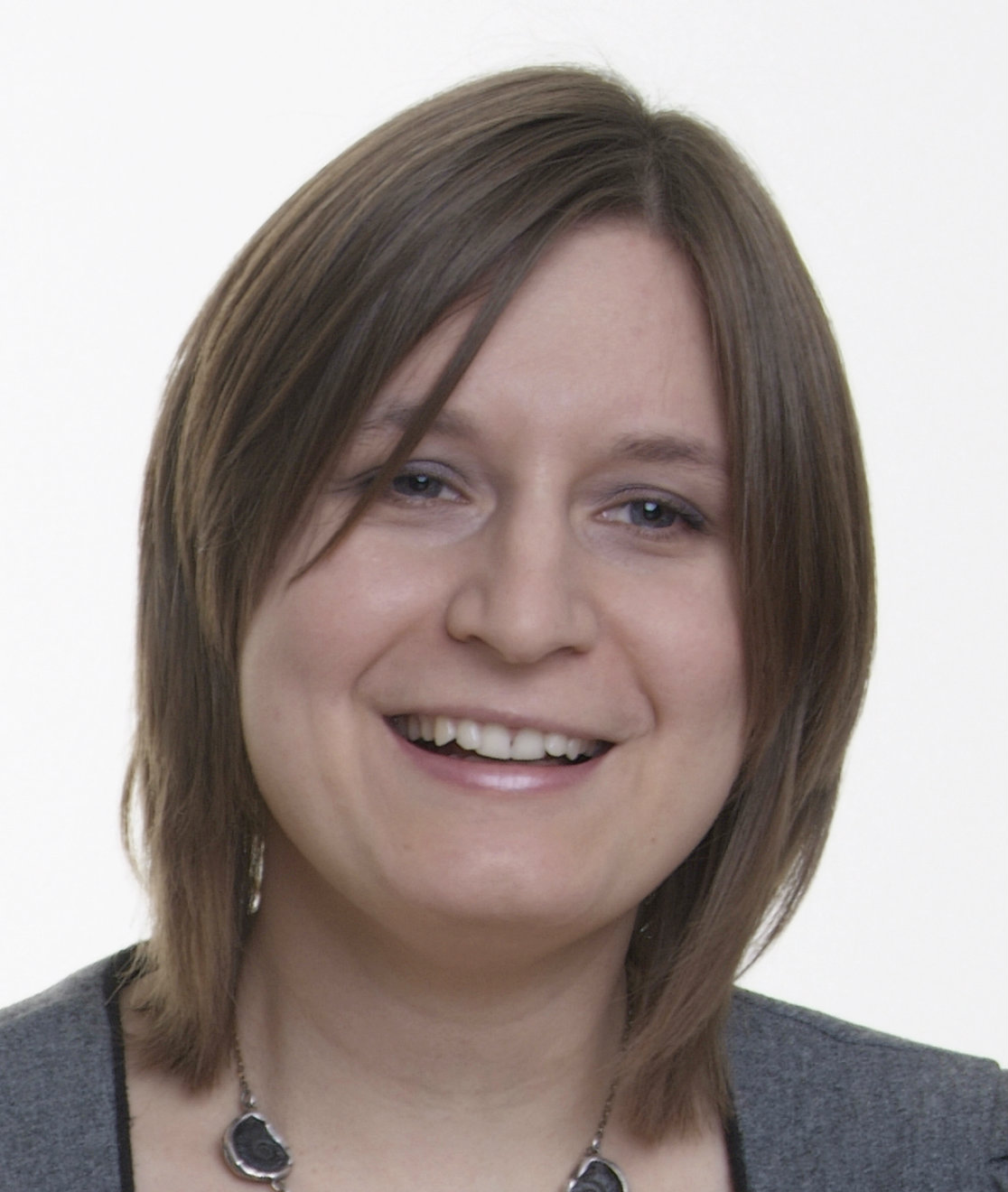
043 Ruth Smith Editor Community Care
RUTH SMITH is Editor and Content Director of Community Care, the multi-award winning information service for social workers. She is responsible for all content and digital products across Community Care, from the news website communitycare.co.uk to the paid for information service Community Care Inform Children and Inform Adults.
Her expertise includes how to make information accessible to busy professionals when and where they need it. She’s also experienced at talking about social care to the wider media.
She won New Editor of Year at the PPA’s New Talent Awards 2013 and with the Community Care team won team of year at the Association of Online Publishing Awards 2013. She first started her journalistic career writing about children’s social care soon after the green paper Every Child Matters was published in 2003.
She is a trustee and director of the Social Worker of Year Awards charity, which celebrates the fantastic, but often unsung work of the sector.
We talk of violence against social workers, the quality of new social workers, challenges, investigations she’s been proud of ,the impact of traumatic stories on journalists and much more.
Thanks as always to Alba Digital Media for technical support on this podcast.
Podcast: Play in new window | Download
Subscribe: Spotify | Blubrry | Podcast Index | Deezer | Youtube Music | RSS

042 Alan Wood President ADCS
An interview with Alan Wood, President of the Association of Directors of Children’s Services. Currently DCS for Hackney and previously Chief Executive of the Learning Trust credited for taking education in Hackney from the worst in the country to a position of excellence in 10 years.
He also caused a storm with quoted comments in a Guardian article calling in to question some newly qualified social workers ability to do the job, labeling them”crap”.
I pressed him on this and he stuck to his opinions although accepting that his language was inappropriate. He praised some schools of social work education saying that they turn out high quality social workers but repeated that he and colleagues feel that too many turn out newly qualified workers “ill prepared” for the workplace.
He added that as there is fantastic expertise among social workers and some do a stunning job, why, if we do it for some, can’t we do it for all.
With so many more issues talked about–have a listen to the full interview with Alan Wood.
Thanks , as always , to Alba Digital Media.
Podcast: Play in new window | Download
Subscribe: Spotify | Blubrry | Podcast Index | Deezer | Youtube Music | RSS

040 JSWE Conference Part 4
Three more interviews from the Joint Social Work Education Conference.
Firstly Clare Parkinson,Lucille Allain and Helen Hingley-Jones exploring contemporary uses of baby and young child observation.
Secondly, David McKendrick talking of a mixed method evaluation of Twitter chat designed to encourage connectivity and professional identity in new social work students.
Finally, John Dow, a service user, asking “where is the evaluation and communication of New Partnerships in the delivery of Social Services . Is there something missing?”
So much is going on! More to come as well as the regular podcasts.
Thanks for listening and keep the feedback coming. Remember SpeakPipe beside the podcast. Let me hear your views.
As always Alba Digital Media were a great help on the technical side of the Podcast.
Podcast: Play in new window | Download
Subscribe: Spotify | Blubrry | Podcast Index | Deezer | Youtube Music | RSS
Rotherham
This is the article I produced for the Guardian online yesterday about the Rotherham report:-
“When Alexis Jay talked to her report on Rotherham you could see and feel the emotion behind it.
The very thought of hundreds of young children being raped , traded and consistently disbelieved, struck deep into the comfort zones of all who listened.
Inevitably , the litany of failures by political and officer leadership led to media outrage and it probably didn’t need to go far to tap into large swathes of the population given Professor Jay’s
Add to this the fact that most of the perpetrators were of Pakistani heritage , one immediate conclusion was that, due to political correctness, the minimising and regular underplaying of the problem had been because all involved had been scared to say anything in order to avoid serious community tensions.
If this, in addition to the police failing to act on many occasions and dismissing the children when they complained is true and the alleged suppression of previous reports is also true then I agree
that all involved need to be dealt with according to their failings.
All this, however, seems to take the focus off the needs of all child victims and survivors of sexual abuse who have to live with the consequences for life. Our duty of care, even if our duty of protection fails, is to provide the best possible help and support and do all we can to try and enable them to achieve something resembling a normal adulthood.
When the Somerset levels flooded we called it a national disaster and channelled funds to help. I think that the scale of child sexual abuse in our country equates to a national emergency and there is strong argument to resource the needs of survivors to a much greater level.
All the children will have individual needs and so a menu of support , properly resourced and away from front line services would be a start. This could be any combination of therapeutic help, practical support, mentoring, group work or any number of other mechanisms. All of this exists already but not in the quantity or commitment needed to sustain the level of need. The shockingly underfunded children and adolescent mental health provision and the far too thinly spread youth services are all casualties of spending cuts. Provision such as The Green House charity in Bristol ( previously the Avon Sexual Abuse Centre ) that provides psychotherapeutic counselling for victims of sexual abuse—children, women and men—is an example of an excellent provision that always has to have one eye on raising funding as well as delivering services.
The thousands of people, many now in adulthood, who still live day in day out with the demons created by their abuse in childhood and who’ve never had the opportunity or the trust to seek help
deserve better. The scale of the problem is huge. When the Register of offenders was created in 1997 it was not made retrospective. The word at the time was that if it had been there would have been 250,000 names on it.
We are getting better at working with sexual abuse—assessing risk and employing far more sensitivity and understanding towards the victims—but data collection is still hugely sparse and badly coordinated so the building blocks of solutions are shaky.
If we could get on with the all encompassing root and branch national Inquiry announced by Teresa May that would at least be a focal point for progress but since Elizabeth Butler –Sloss stepped down we seem to have lost momentum.
In the meantime much of our media gets consumed by the need to blame or cul de sacs about race whereas the truth is that all men who abuse children are equal as criminals. Sure, we need more understanding of individual abusers behaviour—which is where another under resourced facility like the Faithful Foundation does excellent work —or recognising the part played by organised crime in trafficking children from town to town—and looking into some specific behaviours where groups are involved. There’s increasing information out there ( and I haven’t even talked about the continuing problem of hundreds , if not thousands, of men who go abroad to abuse children and ,of course, don’t stop when they come home)but I’m not sure how much wisdom is around.
There’s always the “just bring back hanging” cry and the sometime simplistic “ find some official to blame” shout but even if the latter happens it doesn’t move the chronic problem forward.
I’m all for the” find them, interrupt them and jail them” plan but its got to be supported by the
“ beleive the child, support them and give them real help” plan
The problem is certainly of a scale to merit significant resources and the fact that we currently indirectly abandon so many who deserve so much more gives substance to Alexis Jay’s sensible recommendations for improving our performance.”

040 JSWEC Conf Part 3
Three more excellent interviews from the Joint Social Work Education Conference at Royal Holloway, University of London.
Firstly, Tim Kelly , Dean of Social Work and Community Education who Chaired the whole event, talks of his vision of social work.
Then Amanda Taylor discusses the value she has found in social work book groups and all the possibilities that stem from it.
Lastly Pam Trevithick , a retired academic , looks at the landscape of social work and the challenges facing it.
As always I could only let you hear so many at a time but there are more to come as well as the regular podcasts looking at the issues of the day.
Thanks for listening and keep that feedback coming !
Podcast: Play in new window | Download
Subscribe: Spotify | Blubrry | Podcast Index | Deezer | Youtube Music | RSS

041 Influential abusers and Neglect.
This episode has two interviews I gave on topical child care subjects. The first talks about the influence of Peter Righton , a convicted abuser who was influential in changing systems of care for looked after children in the 1980s and 1990s. There still could be much to discover about not only his behaviour but networks and contacts he had at all levels of influence and seniority.
The second is about the case of neglect which prompted a serious case review that was published this week. It criticised all agencies who, it said , missed many opportunities to interrupt chronic neglect in a family with several young children and talked of the manipulation and deception by the parents who were jailed.
There will be the next installment of the special Joint Social Work Education Conference podcasts in the next few days as well !!
Many thanks to all of you for listening. The audience is still growing. Keep the feedback coming !
Podcast: Play in new window | Download
Subscribe: Spotify | Blubrry | Podcast Index | Deezer | Youtube Music | RSS
040 JSWEC Conf. Part 2
The second of this series features John Devaney, Director of Social Work Education at Queens University , Belfast and his co-presenter John Carpenter, Professor of Social Work from the School for Policy Studies at the University of Bristol.
John Devaney was 20 years a social work practitioner and joined the University in 2006. He is also National Chair of the British Association for the Study of Child Abuse and Neglect.
John Carpenter has been at the University of Bristol since 2005. Previously he was professor at Durham University and is well known for research on community mental health and the evaluation of social work education.
Their Keynote presentation to the Conference was ” Making Social Work Count” focusing on the importance of quantitative research and the need for strong research in to statistical analysis and the value of using numbers to drive the development of policy and practice.
The second interview was with Dr Daryl Dugdale, Teaching Fellow and Programme Director MSc in Social Work at the School for Policy Studies, University of Bristol.
Daryl is a qualified social worker and has been working in the field of children and young people for over twenty six years. Prior to his current role Daryl worked in a range of practice settings concerned with safegauding and child protection. This included residential social work settings with traumatized young boys both in the UK and the USA, adults with learning difficulties and challenging behaviours and the bail and probation hostel setting. More recently he has worked as a Locality Child Care Social Worker in a Community Childcare Team in Bristol. He has also worked as Training and Development Manager at Swindon Borough Council and as a Senior Training and Development Officer for Bristol Safeguarding Children Board. Daryl`s Professional Doctorate focuses on fathers` experiences of the child protection process.
The podcast was recorded at the Joint Social Work Education Conference at the Royal Holloway site of the University of London. The audio is not as good as I normally would like but we had to make do with the conditions we found —and the content is fascinating ! so I hope for this special series you agree with me.
Please remember the feedback—through Speakpipe or i-tunes and my Twitter handle @daveniven. Many thanks.
Podcast: Play in new window | Download
Subscribe: Spotify | Blubrry | Podcast Index | Deezer | Youtube Music | RSS

040 JSWEC Conf. Part 1
The 16th UK Joint Social Work Education Conference and 8th UK Social Work Research Conference took place at Royal Holloway, University of London 23rd–25th July 2014.
The Social World Podcast was there for its entirety and made hours of recordings for you. To be honest, such was the quality of presenters, workshops and attendees generally, that it was really exiting but almost too much to choose from.
The first three interviews are — Harry Ferguson from the University of Nottingham then Ann Hanson and Dianne Biddle , both newly qualified social workers and finally Alan Baird, Chief Social Work Advisor to the Scottish Government.
More to come soon!
My thanks to Jon Bolton and his team from Dundee University for great organisation and a fabulous makeshift studio that came straight from Salvador Dali. Thanks to Adam Bolton as well for the audio support.
Much more about the conference on the JSWEC Website http://jswec.net/2014/ and http://jswec.net/2015/ for next year.
Many thanks as always to Alba Digital Media for all their expertise.
Podcast: Play in new window | Download
Subscribe: Spotify | Blubrry | Podcast Index | Deezer | Youtube Music | RSS

039 Parent Abuse Mirror or Mirage
Jane Evans, trauma parenting specialist, discusses the important issue of child to parent abuse ahead of Mirror or Mirage?: Is Adolescent to Parent Abuse a mirror image of Domestic Abuse, or is this simply a mirage? Are there cross-overs or contrasts between Parent Abuse and Domestic Abuse?
An exciting conference being held in Bristol on 25th September 2014
Keynote Speech by Dr Amanda Holt: Dr Amanda Holt is a Senior Lecturer in Criminology at Lancaster University Law School and she works from an interdisciplinary perspective, drawing on ideas from psychology, sociology, social policy and social work.
Jane shares her wealth of knowledge on the subject in an easy and accessible way for those working with troubled families.
Also included is a BBC interview on a recent topic.
Podcast: Play in new window | Download
Subscribe: Spotify | Blubrry | Podcast Index | Deezer | Youtube Music | RSS
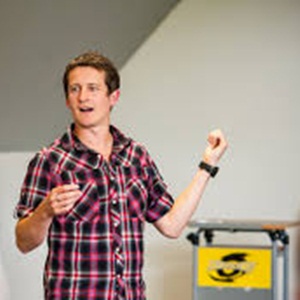
038 Academic Analysis of Social Work in the Media
Kieran is a media linguist and communication consultant. His PhD research explored the language of media interviews and he is now working with David Niven Associates to help analyse the negative portrayal of social work in British media.
In this interview Kieran provides an academic perspective of the way social work is presented in the media. He has conducted qualitative analysis of articles from the Guardian and BBC which include the word ‘social worker’ and finds all are very negative.
To move forwards he emphasises awareness raising to journalists on these issues but also for those speaking to the media. We share our own accounts of having our words twisted into a negative portrayal of our work and how we can prevent this..
DNA is offering training to employers who, like us, recognise that good news stories told by social workers will positively impact the perception the public has of social workers and thus help them do their jobs without such stigma. This training is for those who would like to contribute their success stories. We will help them develop strategies to illustrate their work, prevent negative interpretations and increase confidence.
This work has developed due to a comprehensive survey conducted by DNA which has had excellent feedback which Kieran is currently analysing. The trends are already appearing, to see them please see here.
Podcast: Play in new window | Download
Subscribe: Spotify | Blubrry | Podcast Index | Deezer | Youtube Music | RSS

037 Professional Officer in England: British Association of Social Workers
Professional Officer for the British Association of Social Workers, Nushra, gives an excellent interview/discussion. We talk about social work reforms, the representation of social work and the troubles which Nushra and others in the profession face – and she offers support and advice.
Initially she explains information shared at a social work summit, this was centered around revealing the new processes of children’s services and what the future holds.
There are £30 million worth of funds available over the next two years, the main focus of funds are for improving children’s social work and trying to support children and young people on the edge of care. She discusses the wide opportunities for bidders to compete for funding.
Applying for funds: those that want to follow the innovation programme need to look at the DFE website as there was a lot of support and encouragement for people to do so. Nushra explains in much more detail the process, the support and future events you can go to if interested.
Nushra feels frustration towards the social work reform and speaks in relation to Baby P and the Munroe case, questioning if this is the time. Once again, we discuss the demand for services in relation to the human capacity to cope with such measures. It’s such a fraught situation and seen as such an impossible task – therefore morale is low and so the sheer demands cause jobs to become harder and harder, here Nushra calls for intervention from the government. With more public support we can push forward the actions of the government.
Social work in the media – we praise the excellent peak time documentaries which have been appearing. We discuss the roles of social workers through social media, articles and talking to the media about positive stories. Take the social work in the media survey to help us push the changes which you want to happen to make your jobs easier.
Nushra currently works for the British Association of Social Workers as Professional Officer in England. One of her key responsibilities is leading on children and families social work. Nushra regularly acts as BASW’s spokesperson on child protection issues and has appeared on BBC Breakfast TV, This Morning, Channel 4 News, BBC News, Sky News, Dispatches, the Tonight programme, Radio 4 and a variety of national, international and local media. Nushra initially qualified as a teacher of modern languages before switching to a career in social work, specialising in working with children and families – working in both the statutory and voluntary sector. Nushra has an Ma in Childcare Law and Practice and has also completed the Advanced Award in Social Work.
Secondly, a BBC interview discussing a teacher who has been prosecuted for grooming pupils on Facebook and encouraging them to send him indecent images of themselves. With all the news coverege surrounding Theresa May, this is anther angle at highlighting the important work which needs doing to help protect the children in our society.
Podcast: Play in new window | Download
Subscribe: Spotify | Blubrry | Podcast Index | Deezer | Youtube Music | RSS

036 Working with Children in Care
Practical discussion with Jenni Randall and David Akinsanya, providing advice for front line staff and students.
Jenni was awarded the Lifetime Achievement Award for her social work services. She is an independent social worker and therapist working primarily with children and young people who are or have been in public care. David is a successful campaigner for Looked After children having been in care himself. They both are trainers at David Niven Associates, giving the unique perspective that Jenni was David’s social worker.
The experts begin by giving their perspective of how practice has changed over the last 15 years, most notably how fragmented care work has become. Although this is the case, they believe a long lasting relationship with children in care is what they need most. Having been in care himself, David emphasises that some children in care need professional care rather than foster families. Alternative options appear not to be available anymore and the focus of this work needs to be on what benefits the children.
Jenni discuss the excellent areas of practice, even “against the odds” due to cuts and attitudes in social work.
However they also highlight some very important areas of work with Looked After children which needs improving. For this we hope that those of you in practice can learn from their experiences and continue to help improve the system.
Advice
Jenni advises new social workers to be able to put themselves in the shoes of the families, children or adults of those they work with. Develop the skills to listen and understand how they feel, as you will do a much better job as a social worker.
David advocates getting your hands dirty. Building relationships with those you work with is so beneficial and he states that you should aim to work with people directly rather than ‘sitting behind a desk’.
Secondly
Rolf Harris was convicted this week of all counts against him. I was asked to give a variety of BBC interviews and so have included one at the end of the programme. I do hope that these revelations encourage more people who have experienced abuse to come forward and feel like they are being listened to.
Thank you to Sheena Felton for leaving a SpeakPipe message which I have included. Also to Alba Digital Media for producing this weeks podcast.
Podcast: Play in new window | Download
Subscribe: Spotify | Blubrry | Podcast Index | Deezer | Youtube Music | RSS

035 Social Work in the Media – TV and Radio Interviews
TV and Radio interviews reflecting child protection cases. I often get approached to give these in response to negative stories as the former Chair of BASW; I feel they should be shared within the social work community to discuss the cases in a balanced view rather than the very negative approach that the media takes towards social work.
Firstly, an interview discussing why some women have multiple children removed. The interviewer was very shocked by the report and was asking why this situation occurs and stated ‘social workers should be doing more to prevent these problems’. I counterbalanced this by stating that there are many success cases which are not reported and where social workers are making a big difference. I give my reactions to her appearing to advocate stronger intervention.
Secondly, Kids Company have released results of an independent enquiry stating that services are failing young people and 1 in 5 children in the UK are living in poverty and in Bristol, where this interview took place, the figure is 1 in 4. The suggestion was that social work was either responsible for, or part of, the problem. I conveyed the need for resources in social work, that social workers have higher caseloads and limited time due to cuts from the government. The notion that poverty is caused by social workers is very unreasonable and I aimed to counteract this belief in this interview.
Thirdly, Jimmy Savile was back in the news this week, revealed to have abused over 500 people by using his fame as power. I was asked about the relevance of social work, the lessons that could be learnt by various institutions and help for victims. The one good element of this horrendous case is that hopefully people in any scenario who have experienced abuse can gain the courage to report it and get help.
____
In my view I feel that social workers should be heard in the media more to share positive stories about their work. We achieve so many successes and have wonderful stories about improving lives. In no way should front line staff be forced to talk or respond to negative stories. We have therefore launched a survey to ask your opinions on the subject – Social Work in the Media Survey – it’s only 10 questions and we really want to make a difference to our profession.
Podcast: Play in new window | Download
Subscribe: Spotify | Blubrry | Podcast Index | Deezer | Youtube Music | RSS